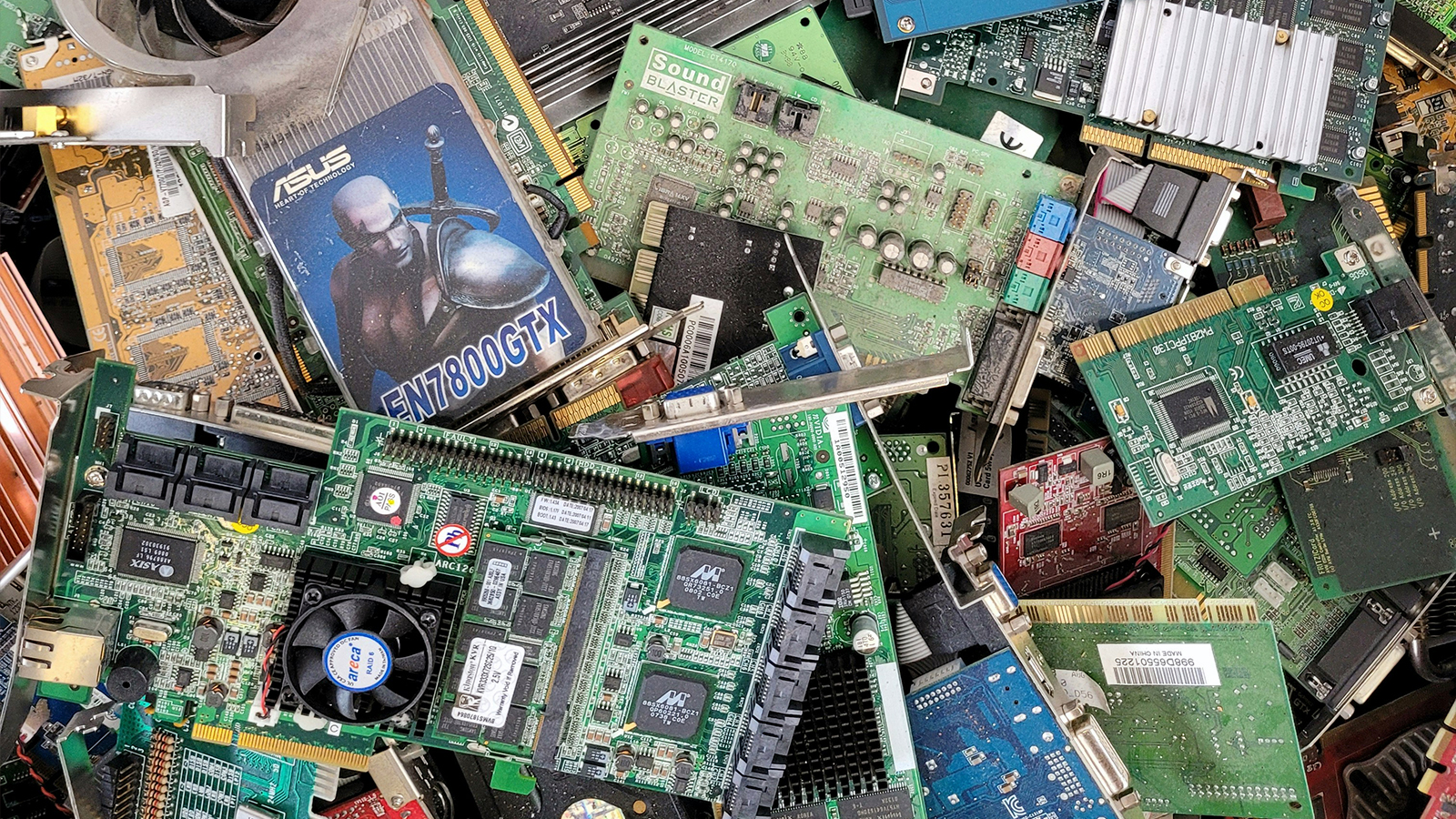Safer, faster, and cheaper way to extract gold at 99% purity from electronic waste detailed — new method for recovering gold from PCBs uses a sanitizing reagent and a novel polymer
This will make e-waste recycling much easier and affordable.

A research team comprising chemists, engineers, and physicists from Flinders University in Australia has developed a new method for extracting gold from ore and e-waste using safer chemicals. According to TechXplore, this technique replaces the deadly cyanide used for leaching gold from the ore with trichloroisocyanuric acid (TCCA) — a cheap and safer compound often used for treating water and disinfection. They then created a new sulfur polymer that would only bind with the gold dissolved in the TCCA. The polymer is then heated or chemically broken down, causing it to release gold with a purity of more than 99%.
Aside from being safer to both humans and the environment, the sulfur polymer is highly recyclable, allowing it to be reused in future processes. This means that you don’t have to continually purchase new stocks of the sulfur polymer, thereby reducing both cost and resource consumption. This process also offers a safer alternative to mercury, which is often used in artisanal and small-scale gold mining and remains the largest source of mercury pollution.
This technique goes beyond gold mining — it’s also a safer, more efficient way of recovering gold from e-waste, as it does not use dangerous chemicals, doesn’t use a lot of electricity, and returns gold at a much higher purity. The team behind this technique, including Dr. Max Mann, Dr. Thomas Nicholls, Dr. Harshal Patel, and Dr. Lynn Lisboa, has tested the process on piles of old electronics and lab waste, and they’ve successfully recovered pure gold from those materials.
“We dived into a mound of e-waste and climbed out with a block of gold! I hope this research inspires impactful solutions to pressing global challenges,” says. Dr. Patel. Dr. Lisboa added, “With the ever-growing technological and societal demand for gold, it is increasingly important to develop safe and versatile methods to purify gold from varying sources.”
Gold is more than just a precious mineral used for wealth and jewelry — it’s also a crucial part of our technology-driven world and is used in making chips. However, it’s also a finite resource so that we might run out of it one day. By making gold recycling safer and more accessible, we will encourage the reuse of materials that would otherwise be discarded as waste products.
Follow Tom's Hardware on Google News to get our up-to-date news, analysis, and reviews in your feeds. Make sure to click the Follow button.
Get Tom's Hardware's best news and in-depth reviews, straight to your inbox.

Jowi Morales is a tech enthusiast with years of experience working in the industry. He’s been writing with several tech publications since 2021, where he’s been interested in tech hardware and consumer electronics.
-
bit_user Reply
I feel like some context is needed for this. I'm sure their "block" was measured in grams. It's still probably not an easy way to make money and doesn't solve the main problem with e-waste.The article said:“We dived into a mound of e-waste and climbed out with a block of gold!"
What they really need is a safe & effective way to separate out the copper from all the plastics and other materials, because the dominant method currently being used is to burn off the plastic and that creates lots of dangerous air pollution affecting the workers at these plants and their communities. -
abufrejoval One of the things about gold is that it can be applied incredibly thin.Reply
So while those shining contacts seem to imply potentially wasted value, the actual mass is negligible.
While the term "recycling" hints at returning items to raw materials of similar value or usability, that only might work for the metal parts, copper from wires and coils, perhaps steel casings, not sure about solder.
Applying the term recycling for chips and PCBs is simply misleading: at the final end of their life-cycle there is no value and huge waste were the main goal must be safeguarding from the toxins.
And in the mean-time it would help if vendors got negative feedback as strong as the true damage they cause for pushing phony OS base requirements.